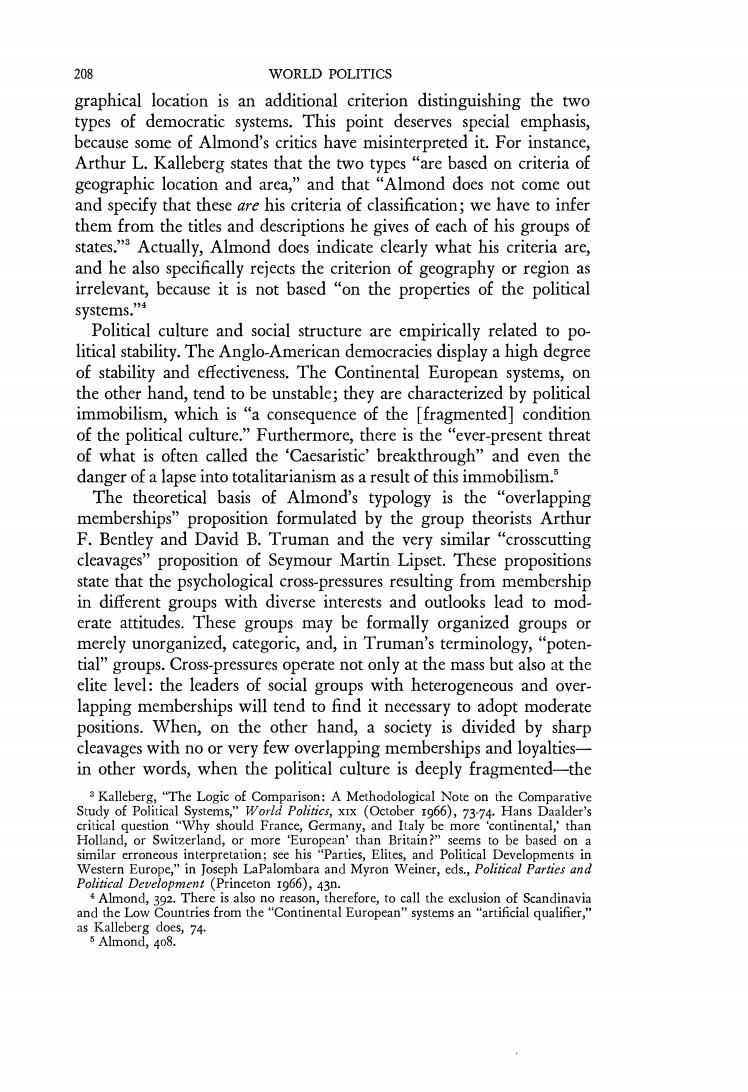正在加载图片...

208 WORLD POLITICS graphical location is an additional criterion distinguishing the two types of democratic systems.This point deserves special emphasis, because some of Almond's critics have misinterpreted it.For instance, Arthur L.Kalleberg states that the two types"are based on criteria of geographic location and area,"and that"Almond does not come out and specify that these are his criteria of classification;we have to infer them from the titles and descriptions he gives of each of his groups of states."Actually,Almond does indicate clearly what his criteria are, and he also specifically rejects the criterion of geography or region as irrelevant,because it is not based"on the properties of the political systems."4 Political culture and social structure are empirically related to po- litical stability.The Anglo-American democracies display a high degree of stability and effectiveness.The Continental European systems,on the other hand,tend to be unstable;they are characterized by political immobilism,which is"a consequence of the [fragmented]condition of the political culture."Furthermore,there is the "ever-present threat of what is often called the 'Caesaristic'breakthrough"and even the danger of a lapse into totalitarianism as a result of this immobilism. The theoretical basis of Almond's typology is the "overlapping memberships"proposition formulated by the group theorists Arthur F.Bentley and David B.Truman and the very similar "crosscutting cleavages"proposition of Seymour Martin Lipset.These propositions state that the psychological cross-pressures resulting from membership in different groups with diverse interests and outlooks lead to mod- erate attitudes.These groups may be formally organized groups or merely unorganized,categoric,and,in Truman's terminology,"poten- tial"groups.Cross-pressures operate not only at the mass but also at the elite level:the leaders of social groups with heterogeneous and over- lapping memberships will tend to find it necessary to adopt moderate positions.When,on the other hand,a society is divided by sharp cleavages with no or very few overlapping memberships and loyalties- in other words,when the political culture is deeply fragmented-the 3 Kalleberg,"The Logic of Comparison:A Methodological Note on the Comparative Study of Political Systems,"World Politics,xIx (October 1966),7374.Hans Daalder's critical question "Why should France,Germany,and Italy be more 'continental,'than Holland,or Switzerland,or more 'European'than Britain?"seems to be based on a similar crroncous interpretation;see his "Parties,Elites,and Political Developments in Western Europe,"in Joseph LaPalombara and Myron Weiner,eds.,Political Parties and Political Development (Princeton 1966),43n. +Almond,392.There is also no reason,therefore,to call the exclusion of Scandinavia and the Low Countries from the“Continental European”systems an“artificial qualifier,” as Kalleberg does,74. 5 Almond,408